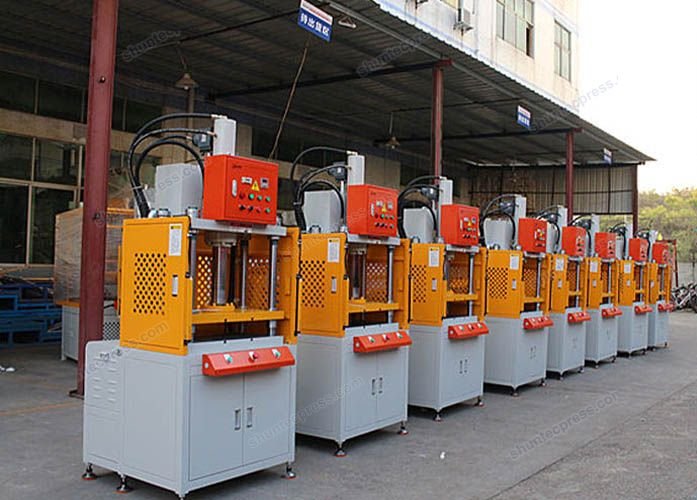


The Hydraulic Press Machine Is One Of The Most Widely Used Equipments In Product Molding And Manufacture. Since its appearance in the 19th century, it has developed very quickly. Due to its wide adaptability, the hydraulic press has been extensively used in various sectors of the national economy. As the hydraulic system and the structure of the hydraulic press are relatively mature, the current development of hydraulic presses at home and abroad is not only reflected in the control system but mainly manifested in the following four aspects as well:
The first aspect is high speed, high efficiency, and low power consumption.
The second is its integration of mechanics, electronics, and hydraulics which help to perfect the whole hydraulic system by fully and reasonably using advanced mechanical and electronic technology.
The third one is its automation and intelligence which can realize automatic diagnosis and adjustment of the system and pretreatment of malfunction.
Last but not least, the hydraulic components are integrated and standardized to effectively prevent leakage and pollution.
As the two major components of the hydraulic press, the main engine, and the hydraulic system, due to the maturity of technology development, there is no big gap between domestic and foreign models. The main difference lies in the processing technique and installation. Good craftsmanship has obviously improved the function of filtering, cooling, and shock & vibration prevention. In terms of oil circuit structure design, hydraulic machines at home and abroad tend to adopt integrated and closed designs. Cartridge valves, superimposed valves, and composite components and systems are widely used in hydraulic systems. In particular, the integrated block can realize professional production, and what’s more, it has premium quality, reliable performance, and a short design cycle.
In recent years, the circuit composed of new hydraulic components developed on the basis of the integrated block also has its unique advantages. Since it does not require additional connectors, its structure is more compact with a relatively smaller volume and lighter weight. No pipe connection is required and thus eliminates leakage, vibration, and noise caused by oil pipes and joints. The logic cartridge valve has the characteristics of small size, lightweight, good sealing performance, low power loss, fast action speed, and easy integration. It appeared in the early 1970s and has since developed rapidly.

